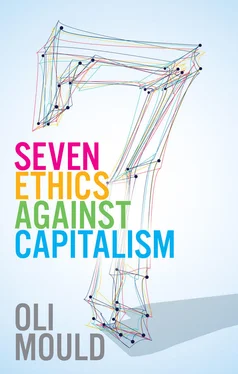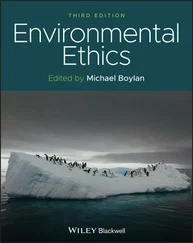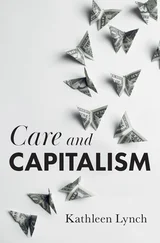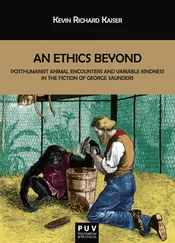These are already-existing (and spreading) examples of the anti-capitalist commons that show how alternative ways of organizing our economies and societies are possible beyond the injustices of capitalism. They point tantalizingly towards a future beyond the environmental and societal injustices that we currently endure. They showcase the kinds of practices, behaviours and mindsets that have not only resisted capitalism, but built fairer worlds. But only a radical emancipation and diffusion of those already-existing commoning practices into a powerful collectivized force can see it viably resist capitalism. Before we can even begin to think about what structures, institutions, policies, governments and cities we need to build, there needs to be a radical change in the ethical position of our societies to reflect the emancipatory potential of the planetary commons. Wrestling back, maintaining and then spreading the commons away from a predatory capitalism requires ever more physical, virtual and emotional resources from those people invested in the commons’ survival (which, if we are to avoid the omnicide that a capitalist realism is marching us towards, will need to be everyone). In short, these resources need to be harnessed, to create an ethical commitment to realizing a planetary commons before it is too late.
This book therefore proposes a set of seven ethics that are gleaned from the already-existing commons. Individually, they can be seen as characteristics of the commons that are in direct opposition to the deleteriousness of capitalism. They are ethics against capitalism. But together, they can act as a mode of understanding the broader movement of commoning, and how it has the potential to resist and undo the deleterious effects of the current prevailing world order. What they are not is a static blueprint for action, a hegemonic view of a new planetary order that will only replace one form of ideological colonialism of the world with another. Indeed, scholars have argued that many of history’s most barbaric colonial acts, not least the destruction of indigenous Americans by European ‘pioneers’, are tied up with the imposition of ‘common land’ for the settlers. 6Instead, commoning is a way of being-in-the-world that disrupts the smooth functioning of the capitalist status quo and its planetary violence on all peoples. So together, these seven ethics are a call to rethink and re-engage with the planet in more just, equitable and ecologically sustainable ways that will safeguard our future-in-common. I will outline in detail what I mean by ethics, but first, what do I mean when I say the commons? And how can they be planetary?
There is no shortage of definitions and articulations of what is fundamentally a very elusive concept. The term ‘common’ refers perhaps to banality or the mundane, maybe a shared interest between friends, or even a derogatory slur upon a particular class of people. As easily dismissed as these can be as part of the quotidian vernacular, there is an underlying sense even with these uses that we can experience a shared existence that transcends a superficial individuality. Beyond that, though, ‘the commons’ becomes a slippery concept. But such elusiveness is a symptom of its vitality in human existence; knowing what the commons is and crucially how to enliven it is as deep a human trait as can be thought of. We are social creatures, we all descend from the same primordial soup, and we live in and share the common wealth that this planet affords us.
Fundamentally, the commons is that which we build by being together. More than a natural resource – a forest, a lake, a field – the commons is the community that builds up around and beyond it, the society it creates and the continual act of democratizing access and sharing the gifts of that resource to those who need it most. Building on the work of anthropologist Stephen Gudeman and geographers J. K. Gibson-Graham, the commons can be thought of less as a unitary or singular protected ‘natural’ resource (such as a rainforest, a pasture or an irrigation system, which are traditionally thought of as ‘common’ resources in institutional narratives) and more as a dialogical creation between a resource and the community it brings into existence. In other words, to realize its emancipatory potential from capitalism’s enclosure, the ontology of the commons requires a deeper understanding of its ‘lived’ component – something that comes from an interaction between the place and the community that relates to it. This conceptualization of the commons therefore differentiates it from those seen in more institutional and global forms, namely the Bretton Woods institutions such as the United Nations, the International Monetary Fund or the World Bank (but also including national-level interests such as foreign aid departments). These tend to see the commons as a static piece of land or natural resource that falls outside the jurisdiction of national governments or private interests; something to be guarded, with access limited to a deserving few.
Gudeman and Gibson-Graham argue against this. For them the commons is not a physical resource that abides by some regulatory framework that is imposed from above. They argue against this ‘top-down’ institutional view of the commons. They do acknowledge the importance of safeguarding the material wealth of the commons, but without theorizing the resources as being of the community, the commons will continue to be threatened with capitalist enclosure. This is because the commons will still be beholden to the same global political-economic logics that dictate the global institutions and national governments, that is, market interests ultimately trumping those of the indigenous communities. It’s just for the supra-national institutions these logics have agreed to collaborate via regulation to administer the scarcity of the resource. It is of course laudable to protect a resource from overuse (and indeed has helped protect rainforests around the world from deforestation, oceans from overfishing and pastures from overgrazing) but it is not a functional mode of diffusing the commons throughout society so as to resist and replace capitalism, because it is ultimately beholden to market logics, however steeped in social responsibility they may be at the time. Indeed, the institutions that govern them will often restrict local indigenous communities from accessing the common resource, designating it instead as a protected area and assuming a stewardship role, dividing up the resource as the institutions see fit, rather than collaborating with local knowledge; it is a form of colonial commons.
This is not a concept of the commons that we need today. Instead, any commons does not exist until a resource is overlaid with a community of people (and things) that freely access it. Gudeman argues that ‘taking away the commons destroys community, and destroying a complex of relationships demolishes a commons’. 7Seeing the commons in this way redefines both the commons and community. As the feminist scholar and researcher of the commons Silvia Federici argues:
‘Community’ has to be intended not as a gated reality, a grouping of people joined by exclusive interests separating them from others, as with communities formed on the basis of religion or ethnicity, but rather as a quality of relations, a principle of cooperation and of responsibility to each other and to the earth, the forests, the seas, the animals. 8
An example of this conceptualization of the commons often cited is the Van Panchayats in India, an indigenous community-based forest management system that came about through protests in the 1920s against what the community saw as the mismanagement of the forests by British Imperial rule. The community broke away from the state-led ‘Joint Forest Management’ system, which they saw as ineffective in stopping deforestation and the decline in local biodiversity. For a century, and at much lower cost than this national scheme, the local communities have continued to live in and off the forest as an integral part of their daily activities, all the while maintaining biodiversity levels and managing de- and reforestation themselves. 9
Читать дальше












